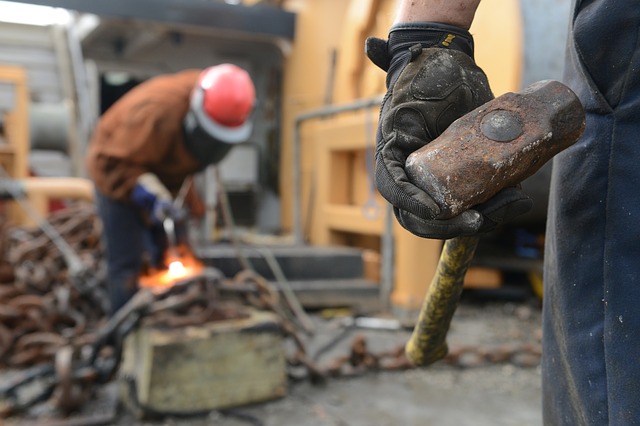Labour
Contents |
[edit] Introduction
There are various definitions of the term ‘labour’.
[edit] Construction
In the construction industry, labour is the term usually given to unskilled, manual workers on a site, i.e what is normally termed ‘manual labour’ or ‘site labour’. It may do a variety of jobs including, digging, cleaning, catering, carrying and lifting. Typically, such workers have little training or qualifications and may be employees of a contractor or sub-contractor, or temporary workers hired for part or all of the project. The term labour does not include consultants or skilled tradespeople (trades).
In the UK in recent years, much manual labour has come from countries such as Poland and Eastern Europe, particularly Romania and Bulgaria. Poland in particular has also supplied many skilled plumbers, electricians, carpenters and so on.
[edit] Economics
In the world of economics, ‘labour’ is one of the three ‘factors of production’, along with land and capital. Historically, the three factors have been required in combination to create a business or enterprise. However, the advent of the internet and e-business has obviated the need for land in some instances, e.g a business that only exists in cyberspace and therefore has no requirement for premises.
[edit] Politics
‘Labour’ is the name of a British political party that aims to support the interests of the workers and the lower-paid sections of society. Traditionally a party of the centre-left, it was founded in 1900 and grew out of the trade union movement. Since the 1920s, it has been the main rival to the Conservative Party. Ever since, the two entities have dominated British politics, alternating in power in what is called a ‘two-party’ system.
The term ‘labour’ may also be applied to similar left-leaning political parties around the world although they may not have ‘labour’ in their name but may be called something else, e.g the workers party or the socialist party. But generally, they will still be the party of labour.
[edit] Verb
When used as a verb, to ‘labour’ can mean to toil earnestly, or work hard or persistently at some task.
[edit] Related articles on Designing Buildings Wiki
Featured articles and news
Inspiring the next generation to fulfil an electrified future
Technical Manager at ECA on the importance of engagement between industry and education.
Repairing historic stone and slate roofs
The need for a code of practice and technical advice note.
Environmental compliance; a checklist for 2026
Legislative changes, policy shifts, phased rollouts, and compliance updates to be aware of.
UKCW London to tackle sector’s most pressing issues
AI and skills development, ecology and the environment, policy and planning and more.
Managing building safety risks
Across an existing residential portfolio; a client's perspective.
ECA support for Gate Safe’s Safe School Gates Campaign.
Core construction skills explained
Preparing for a career in construction.
Retrofitting for resilience with the Leicester Resilience Hub
Community-serving facilities, enhanced as support and essential services for climate-related disruptions.
Some of the articles relating to water, here to browse. Any missing?
Recognisable Gothic characters, designed to dramatically spout water away from buildings.
A case study and a warning to would-be developers
Creating four dwellings... after half a century of doing this job, why, oh why, is it so difficult?
Reform of the fire engineering profession
Fire Engineers Advisory Panel: Authoritative Statement, reactions and next steps.
Restoration and renewal of the Palace of Westminster
A complex project of cultural significance from full decant to EMI, opportunities and a potential a way forward.
Apprenticeships and the responsibility we share
Perspectives from the CIOB President as National Apprentice Week comes to a close.
The first line of defence against rain, wind and snow.
Building Safety recap January, 2026
What we missed at the end of last year, and at the start of this.























